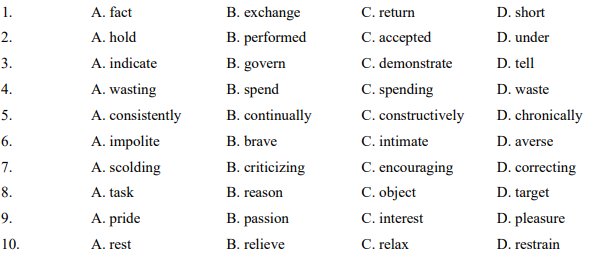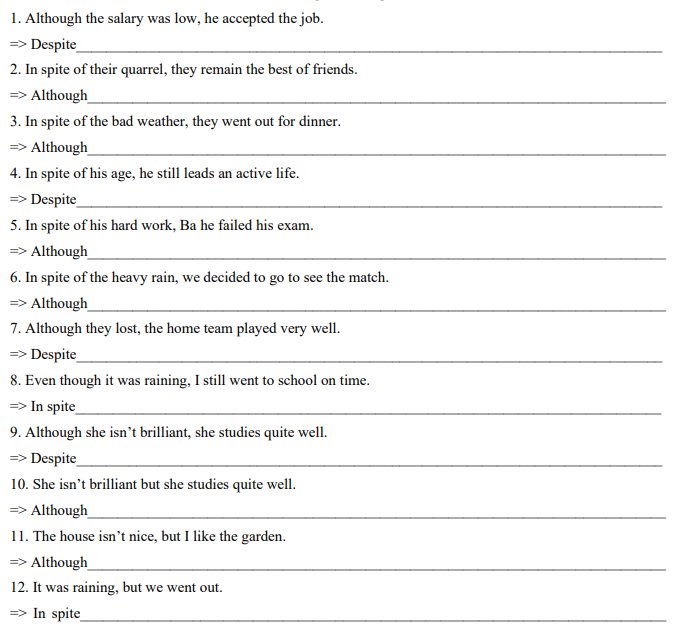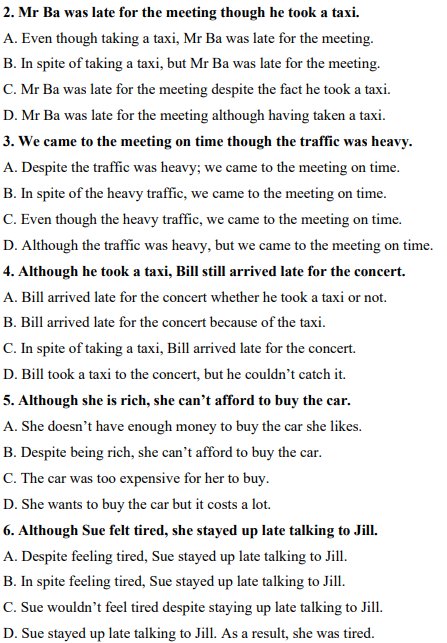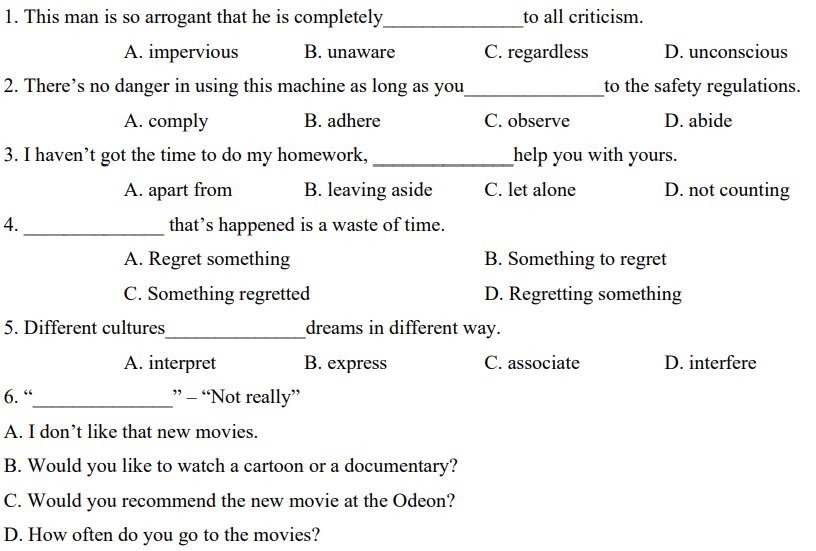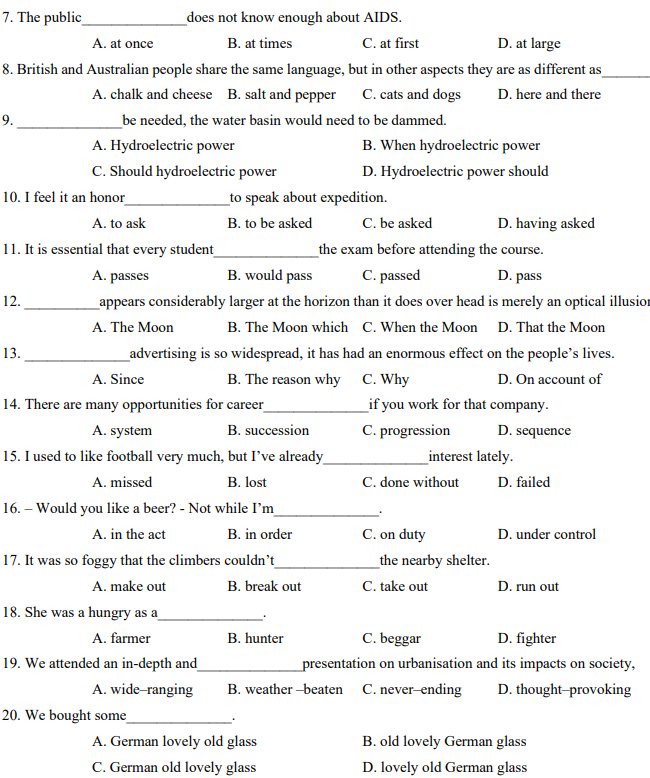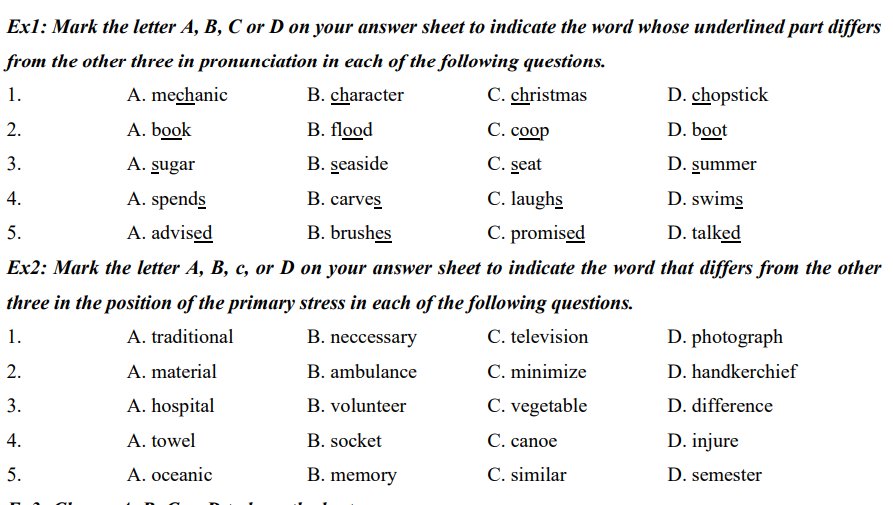United Parcel Service (UPS) believes that its employees should give the firm a fair day’s work for a fair’s day pay. The package delivery firm seems willing to give more than a fair’s day pay. But in (1) ______________, UPS expects maximum output from its employees.
Since 1920s, the firm’s industrial engineers have been studying every detail of every task (2) ______________by most UPS employees. From their studies have come time and motion standards that (3) ______________how those tasks are performed and how long they should take. Drivers, for example, are expected to walk to a customer’s door at a speed of exactly three feet per second. They are told to knock as soon as they get there, rather than (4) ______________ time looking for a doorbell.
Work engineers are (5)______________riding with drivers, timing everything from stops at traffic lights, to wait at customers’ doorway, to stairway climbs, to coffee break. And they are not (6) ______________to pointing out the occasional inefficiency. Additionally, supervisors ride with the least good drivers, noting how they work and constantly (7) ______________them until their work is up to standard.
The (8)______________of all this work engineering is efficiency, and UPS has been called one of the most efficient companies anywhere. It's also a highly profitable company. Most drivers take the regimentation in stride: many show (9) ______________in meeting the UPS standards each day. Others, however, feel that they are constantly being pushed, that it is impossible for them to (10) ______________at work. UPS officials claim that the standards provide accountability. And, they say, employees who work according to UPS standards should feel less tired at the end of the day
